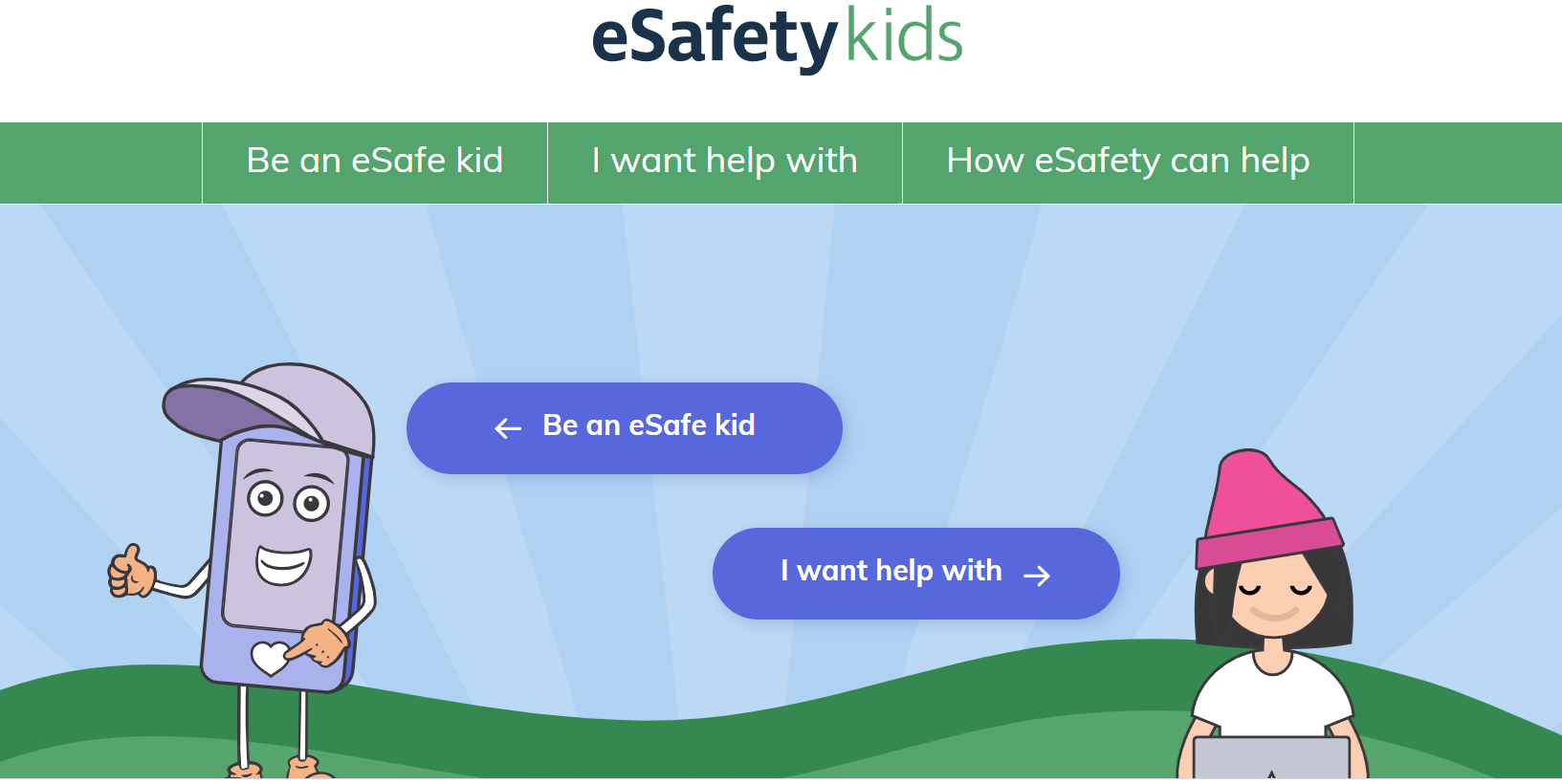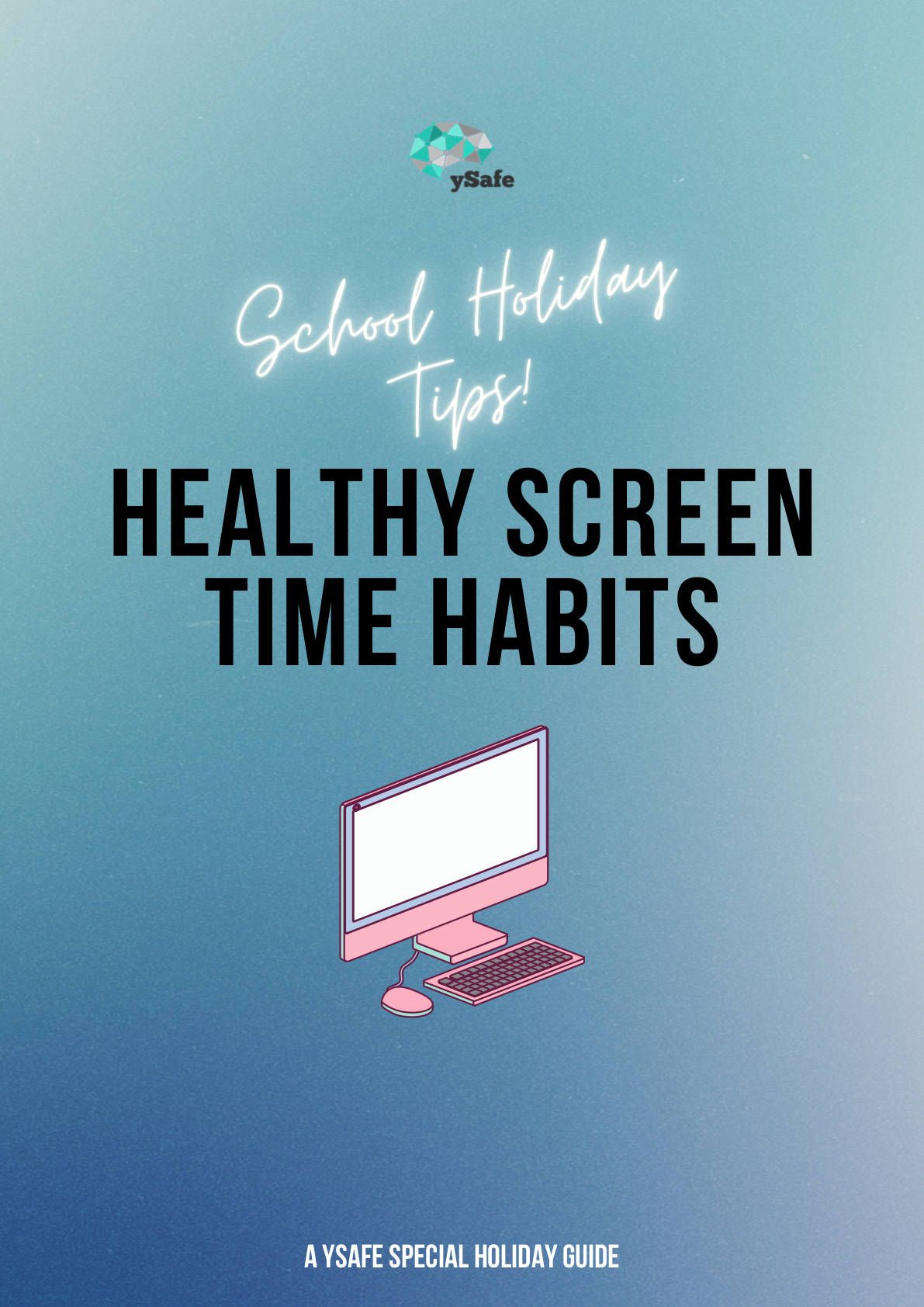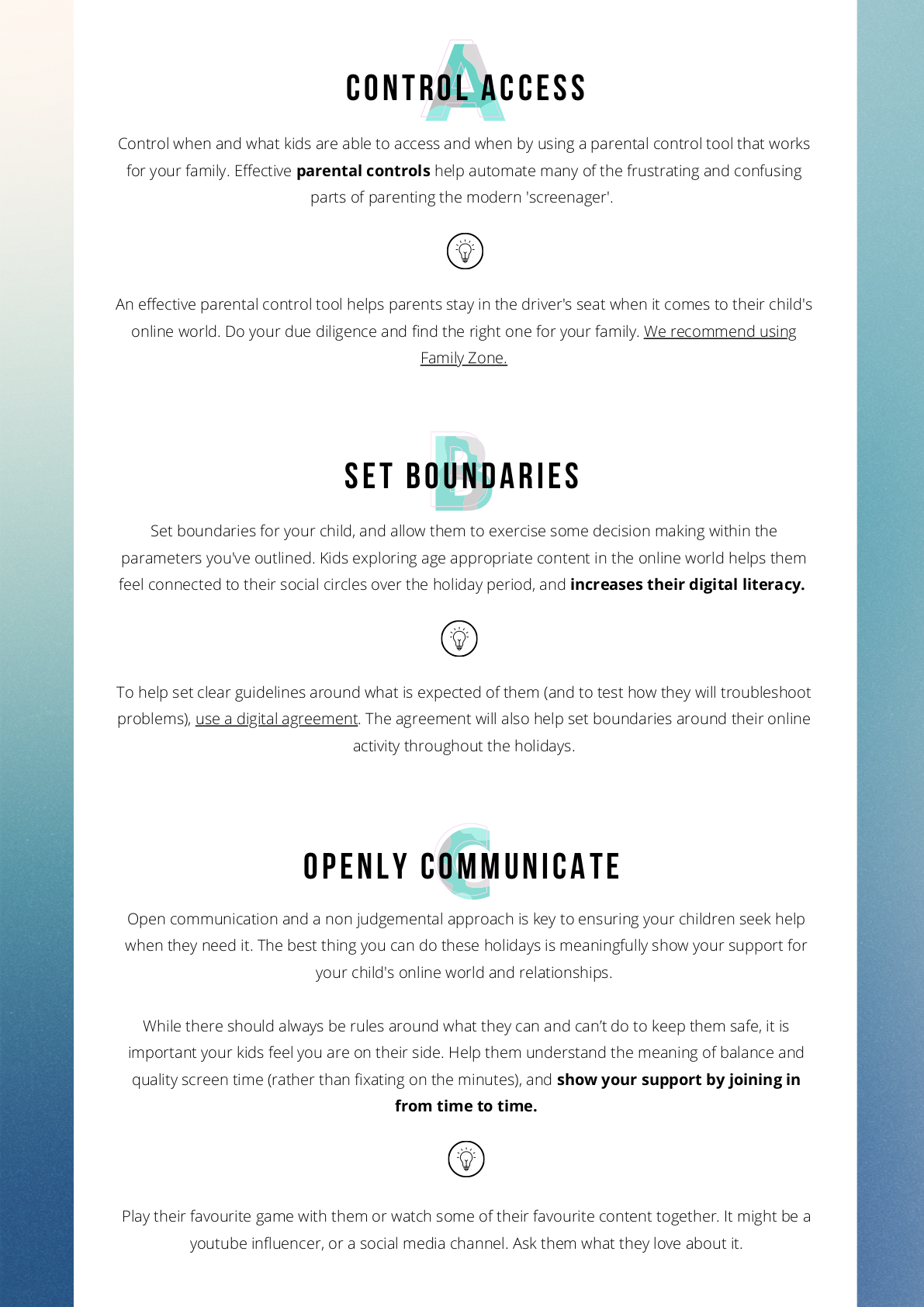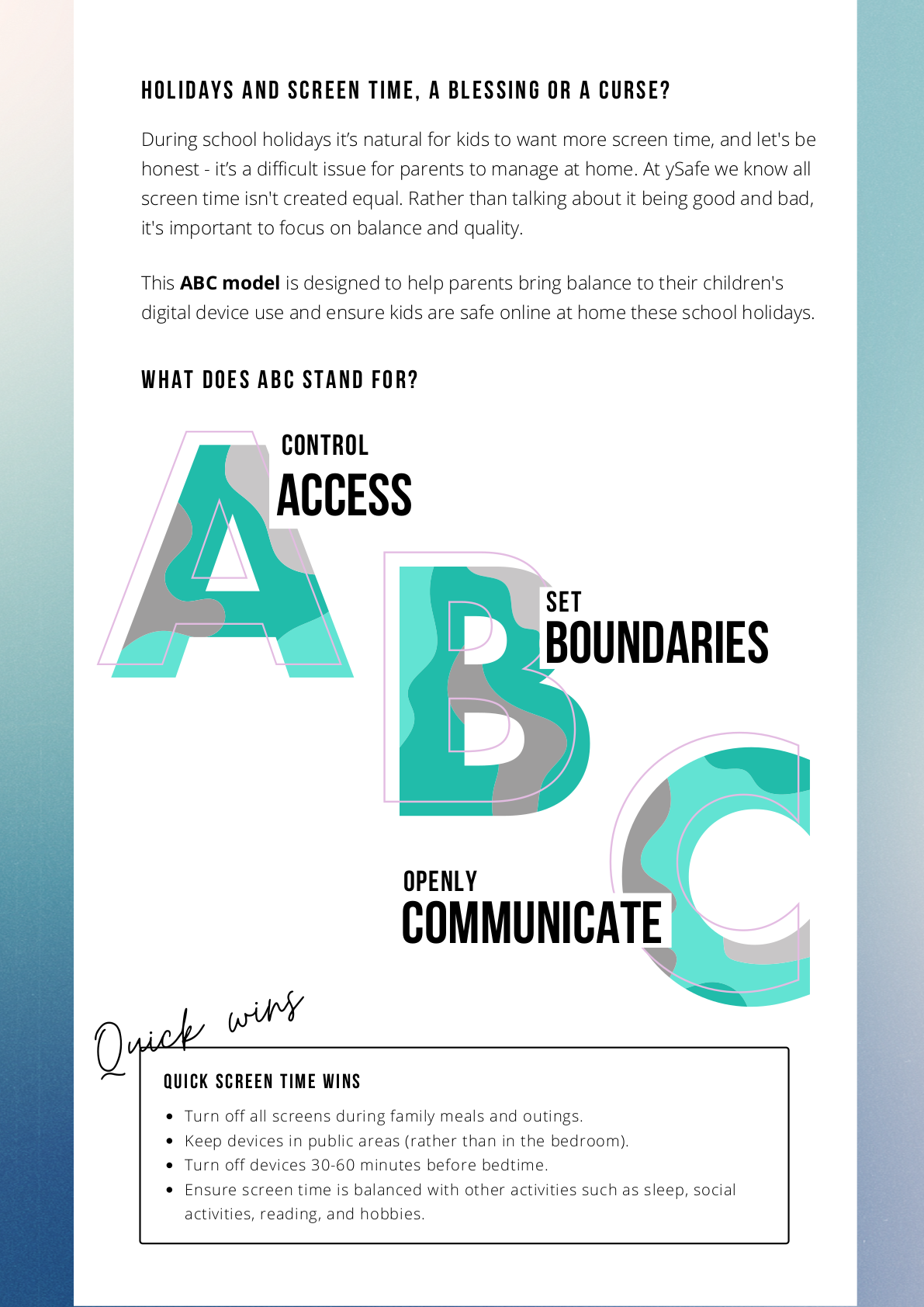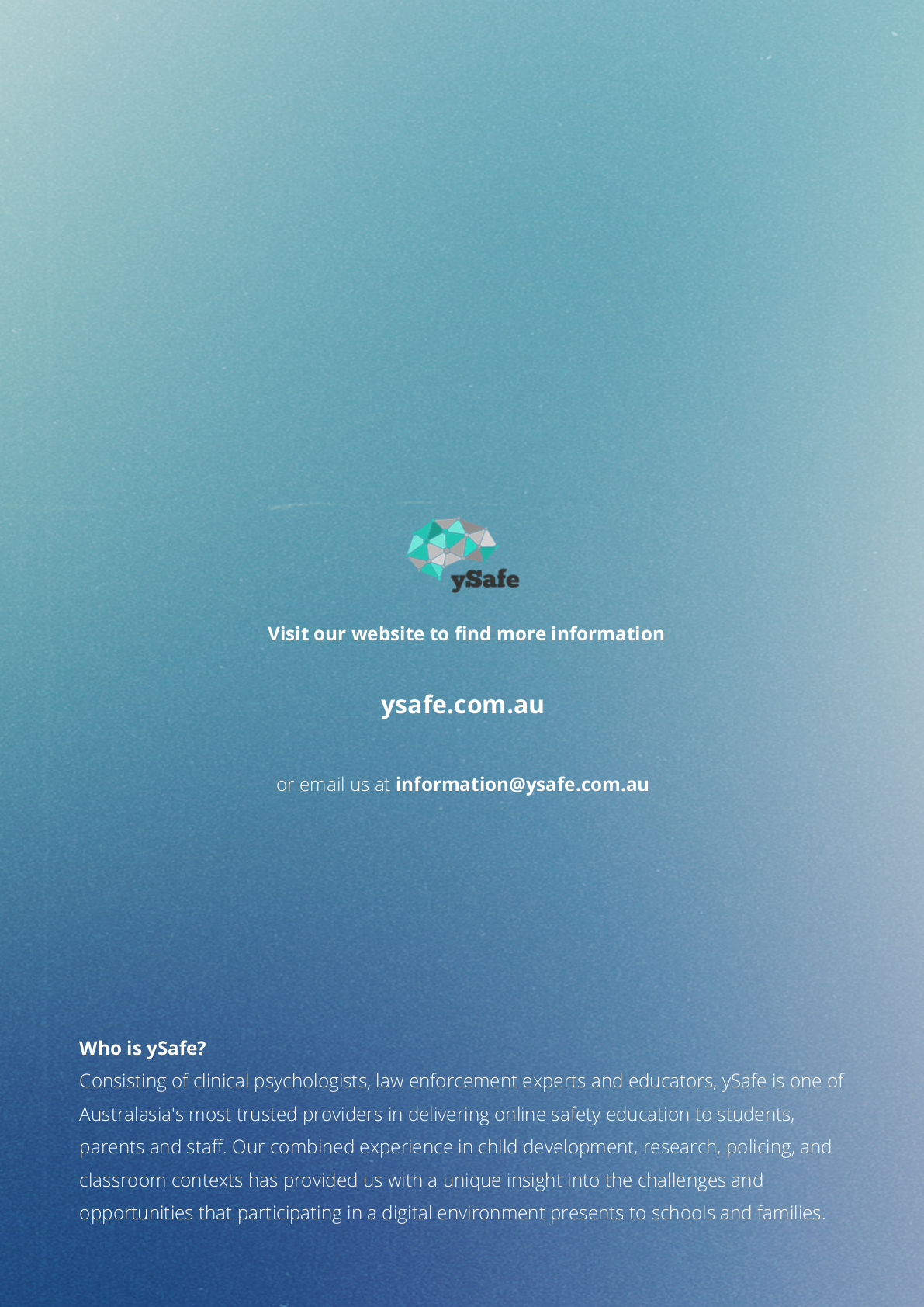Safety - Online
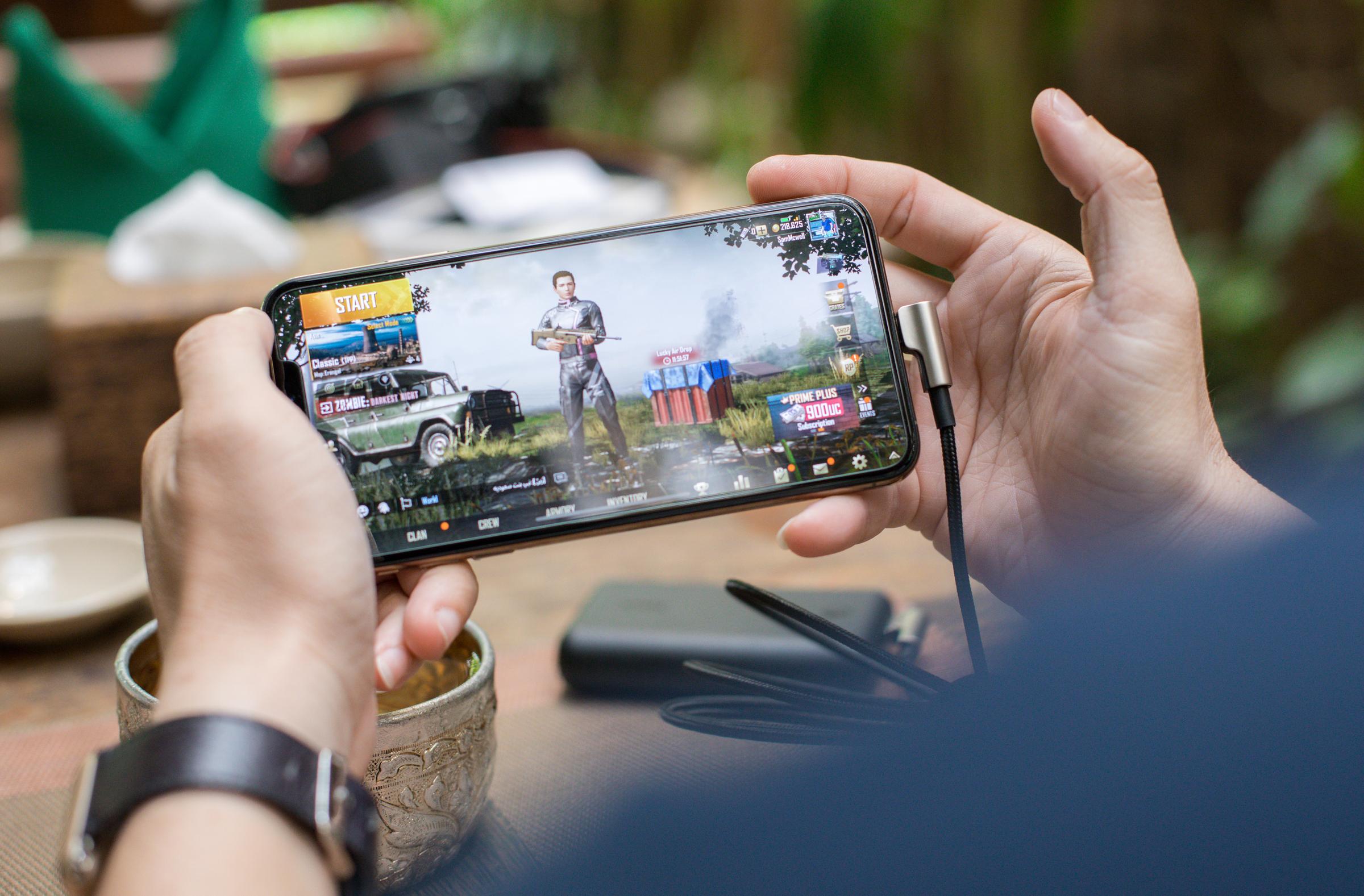
eSafety tips for staying safe online during the COVID-19 pandemic
Staying connected online has never been more important to keep in contact with friends and family, and for students to learn remotely. However, this can also bring risks. View these eSafety resources to help students, parents and carers, and educators keep safe online.
https://www.esafety.gov.au/key-issues/covid-19
Monitoring Your child's Use of Internet Safely
Children are spending more time online. When talking with your children about their time online, try always to be positive and be open. Put healthy boundaries in place immediately. Here are a just few tips:
- Talk to your children about what they are doing online, safe and age-appropriate platforms, and the steps they take to stay safe online.
- Make sure they can tell you if anything happens online that makes them feel weird in the tummy, upsets them in any way or they see something confronting.
- Agree on how much time your kids spend online in addition to their schoolwork. Include how long they can play games, what group chats they are allowed to use, and how long they spend on them.
- Ban devices at dinner for the whole family…parents, including no devices after a particular time.
- Encouraging and constantly reinforcing positive social values is extremely important. We all need to be kind, respectful, and responsible online at all times.
- Use Safe Search options that most browsers and standard search engines have (usually under the 'Settings' menu) and parental controls on devices, especially for younger children.
- Know where to seek help and assistance for both you and your child if you should need it. To report severe Cyber Bullying, Image-Based Abuse, Illegal and Harmful Content, and Adult Online Abuse, visit www.esafety.gov.au; if contact includes threats of harm, suspicion of grooming, and child exploitation, contact your local police or Crime stoppers immediately.
Staying Safe Online.
The eSafety Commissioner is a valuable resource for students, teachers and parents. The site has a lot of excellent information ranging from general advice on family technology agreements to explicit information about a number of Apps that students are regularly using.
The link to the site is below followed by two other fact sheets for parents.
Mobile Phone Safety
At St. Patrick's we have a no mobile phones policy for students. If for some reason your child needs to have a phone before or after school, they must hand their phone in at the front office before they go to class and pick it up again before they leave in the afternoon. During the school day students can always be contacted by a phone call to the front office. If students are found with a phone during the school day, the phone will be confiscated and parents will be notified.
A reminder also that all phone capabilities of smart watches need to be disabled or sim cards taken out while students are at school. If students are found to be using their smart watch in this way they will also be confiscated and parents notified.
These policies are in place for the safety and well-being of all our students and we thank you for your ongoing support.
SOCIAL MEDIA HELP
Kids Helpline. 1800 55 1800. Phone support is there all day, every day. Online support is open from 8am-midnight every day (AEST).
Suicide Callback Service. 1300 659 467. Phone support all day, every day, and follow-up calls.
eHeadspace. 1800 650 890. Open 9am-1am daily (AEST).
Lifeline. 13 11 14. Phone support all day, every day. Online support 7pm-4am daily (AEST).
Beyondblue. 1300 22 4636. Phone support all day, every day. Online support 3pm-midnight every day.
If a life is in danger call Triple Zero (000) right now.
Parents please DO NOT send any devices with your child to school if the device has access to the internet. Children need to always be supervised when on the internet.
Thank you for your support in keeping our children safe.
https://www.esafety.gov.au/kids
www.esafety.gov.au
eSafety’s website – www.esafety.gov.au – is a place where parents / educators can go to find useful and evidence-based advice about online safety.
Staying Safe
ThinkUKnow is a website that provides information for parents and students about cyber safety and the responsible use of technology. Understanding how young people use the internet and what they enjoy doing will help you to recognise any suspicious or inappropriate behaviour. It will also help you to talk with your child about their online activities if they think you understand the online environment.
(http://www.thinkuknow.org.au/site/)
https://www.safeonsocialtoolkit.com/pages/home
https://www.parentingideas.com.au/blog/why-first-borns-rule-the-roost/
https://www.safeonsocialtoolkit.com/pages/home

